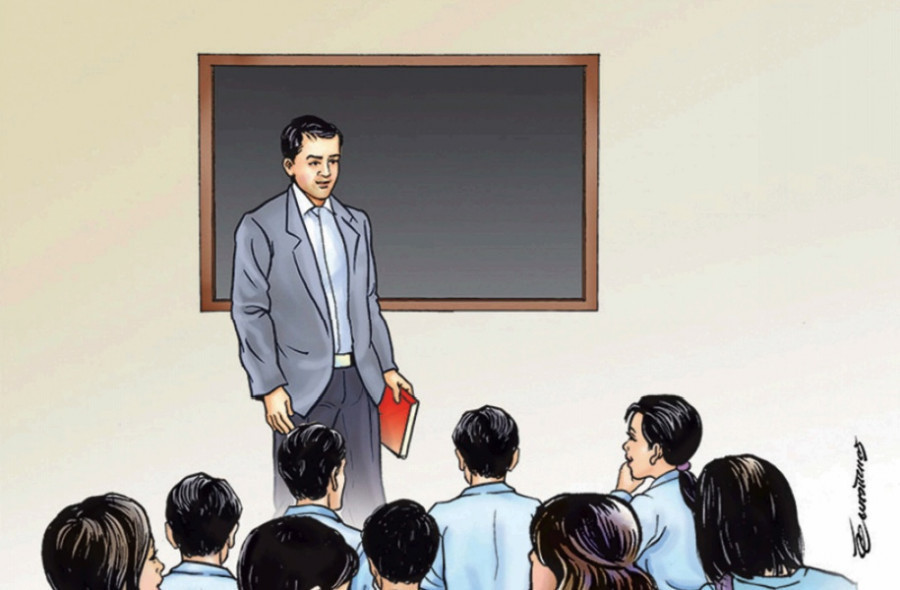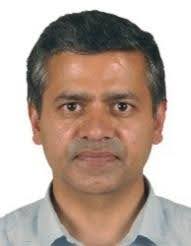Columns
Rethinking academia
Professors must be free to influence through teaching, research and academic achievements.
Sunil Prasad Lohani
The fate of a nation heavily relies on the quality of its higher education institutions (HEIs). The top universities worldwide are recognised through their graduates and research, innovations and contributions to human knowledge. Research output is the most significant factor in evaluating institutional quality in globally recognised university rankings. In rankings, such as the QS World University Rankings and the Times Higher Education (THE), evaluation methods primarily assess research activity through research productivity, as evidenced by research publications and citations, accounting for about 60 percent. These methodologies represent the university’s role as a global brand for its role in knowledge generation, talent attraction and impacting global conversations and development. The competition for visibility and impact in research is associated with academic research focus and strategy.
In this international backdrop, Nepali universities struggle to stand out, as most universities have little impactful research. The reasons why Nepali universities fail to get an international footprint, repeatedly in media reports, are no secret. An old and well-documented practice of political appointments to university leadership is at its root.
Instead of universities being led by senior professors with proven academic records, approached independently by an impartial Board of Trustees (BOT), including acclaimed national and international scholars, Nepal’s universities remain headed by individuals appointed through political negotiation, mostly affiliated with the incumbent coalition. After their appointment, these individuals mostly follow a quid pro quo system to select deans, directors, campus heads and department heads through internal lobbying and party-tied allegiance instead of considering capability, vision or scholarly achievements.
Such a culture fosters an environment where many professors and students align themselves with political factions, often prioritising political loyalty over the academic needs of their peers, students and the institution itself. This blatant malpractice extends to the mismanagement of fundamental resources such as human, financial and physical, which ultimately paralyse any actual effort to further research progress or enhance quality learning. Naturally, in such an environment, motivation among academic staff is bound to be at an all-time low. Dedicated professors receive no reward or appreciation for intellectual effort. Instead, the institution provides incentives to political players and university leadership’s cronies who obtain administrative roles by name-dropping rather than by integrity and strong academic stewardship. This erosion of academic morale spreads into every level of the university hierarchy. Administrative staff get complacent, professors and students lose motivation, which deteriorates the overall learning quality.
Intellectual vision suffers at the hands of an individual wishing for political gain within a toxic environment of groupism, cronyism and nepotism. There is no level playing field for competition. Merit and research-credentialed professors are pushed away because they avoid participating in the skewed game. The worst leaders in an environment of patronage constantly misuse power to serve narrow interests, imperilling institutional advancement. Universities’ leadership constantly disregard fundamental principles that enable institutions to thrive by using meritocratic and open-minded approaches, the best person for the job, and rewarding performance rather than favouring cronies and political allies.
Instead of facilitating an environment where professors feel encouraged to lead by research, innovation and mentoring, the process honours bureaucratic games, sycophancy and hollow self-promotion. Politically motivated pressures quash academic freedom, where capable professors get denied rightful platforms to contribute. Rather than building an enabling environment for serious academic progress, our universities tend to focus on managing superficial activities, disregarding the importance of a supportive work environment. The consequences of this systemic decay are increasingly visible. Universities are struggling to fill their enrollment quotas. Instead of addressing internal issues to create a better environment that builds prospective students’ confidence, we appear to be justifying their scepticism: Why invest in a system known more for dysfunction than for research and innovation? The absence of a strong research culture and state-of-the-art pedagogical practice, both vital for any respectable academic institution, has ultimately rendered Nepali universities an increasingly unattractive choice for students.
The current institutions persist in prioritising administrative conflicts and careerism. The foundation of academic freedom and professorial autonomy is undermined by concerned bodies who exploit their authority to advance agendas of self-interest, secure shallow benefits and establish personal constituencies. Student and professors’ professional organisations often appear more loyal to personal and political agendas than to professional and institutional welfare. And yet, such a straightforward reality is repeatedly being blindsided. It is time we shattered the obsession with administrative power. Professors do not need to negotiate for meaningless administrative titles to wield influence. Instead, they must be free to influence through teaching, research, national and international collaborations and academic achievements.
The only possibility of success depends on new administrations learning from past administrative mistakes that could be corrupt, manipulative, self-serving and did not value merit. And it has to start with one major shift in the promotion of meritocracy in every stratum of the university. This must include university bodies actively identifying individuals who demonstrate integrity and academic leadership through research, publications, collaboration, teaching and mentorship that are independent of administrative roles or affiliation with institutional leadership. These individuals should be invited to contribute meaningfully to vital university functions. Removing the culture of favouritism and political interference of any kind, while focusing on rewarding academic excellence, is the only way Nepali universities can reclaim their place in the global academic spectrum.




 9.89°C Kathmandu
9.89°C Kathmandu















